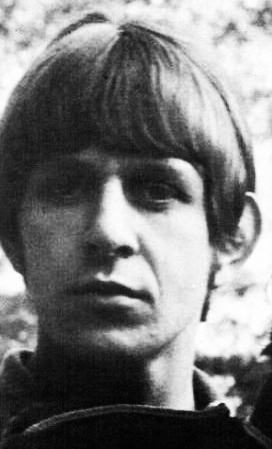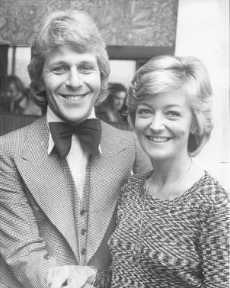Carl Wayne is an English actor, singer and entertainer. He is possibly best remembered as the front man and spokesman for the band, The Move, in the 1960s.
Wayne was born Colin David Tooley on August 18, 1943, in Winston Green near Birmingham, England and raised in the Hodge Hill district of the city. Inspired by the American rock and roll careers of Elvis Presley, Eddie Cochran and Gene Vincent, he formed his own music group, “The G-Men,” in the Late Fifties, later joining “The Vikings.” Appearing in a pink stage suit, his powerful baritone voice made him popular in the Sixties and he performed in nightclubs through Germany. The band eventually signed with Pye Records, but none of his three singles reached the music charts.
Despite that hurdle, Wayne represented England at the prestigious Golden Orpheus Song Festival in Bulgaria in 1965 and one first price. That same year, he joined the Move, a Birmingham beat supergroup drawn from top local bands, enjoying three years of hits with singles such as “Night of Fear,” “I Can Hear The Grass Grow,” “Flowers in the Rain,” “Fire Brigade” and “Blackberry Way,” the only song to make #1 in the charts. In their early years, they had a stage act which occasionally saw Wayne taking an axe to television sets or chain sawing a Cadillac to pieces at the Roundhouse in London. Eventually, they started getting banned from every theatre venue in the United Kingdom.
By 1968, the group began fragmenting as a result of personal and musical differences. A shift in music preferences also affected their preferability and member Roy Wood, departed to create the Electric Light Orchestra. Since Wood wrote all of the band’s original material, the group broke up shortly afterward. Their last single,”Curly,” only reached #12 on the charts in 1969.
Going solo, Wayne performed several singles and made a few record albums on his own, some including songs written and produced by Roy Wood. Among his singles were “Way Back in the Fifties,” “Hi Summer” backed with “My Girl And Me,” “Maybe God’s Got Something Up His Sleeve,” the John Lennon song “Imagine,” a cover version of the Cliff Richard hit “Miss You Nights” and “Aerial Pictures” written by Roy Wood. He was originally offered the chance to record “Sugar Baby Love,” but he rejected it, and it given to the Rubettes, launching their career and becoming a number one hit. He also went on to work on television, singing the theme songs to the talent show “New Faces.” One of the songs, “You’re a Star!”, was a minor hit for him in 1973. In 1977, Wayne took part in the “Song for Europe” contest, hoping to represent the UK in the “Eurovision Song Contest,” but his song, “A Little Give, A Little Take” finished in 11th place out of 12 songs. Wayne also recorded a few times with the Electric Light Orchestra as guest vocalist which remained unreleased until they appeared as bonus tracks on a remastered re-issue of the group’s second album, ELO 2, in 2003. He never made the charts after leaving the Move, but he still enjoyed a steady career in cabaret and on TV, recording versions of songs from the shows of Andrew Lloyd Webber and Tim Rice while doing voiceovers, jingles and backing vocals. He also dabbled in acting, getting a small role in “Crossroads” on television, meeting actress Susan Hanson who he married in 1974. He appeared on “The Benny Hill Show” on January 5, 1985, playing the role of Face in Benny’s “A-Team” spoof.
In 2000, Wayne replaced lead vocalist Allan Clarke in the Hollies and toured Europe and Australia, playing venues all over the United Kingdom. They recorded a new song, “How Do I Survive,” in February 2003, but his last concert with the group was on July 10, 2004 in Iggesund, Norway. Shortly afterwards, he was admitted to hospital for tests and was diagnosed with oesophageal cancer. He passed away a few weeks later on August 31, 2004 at the age of 61, survived by Susan and their son, Jack Wayne

